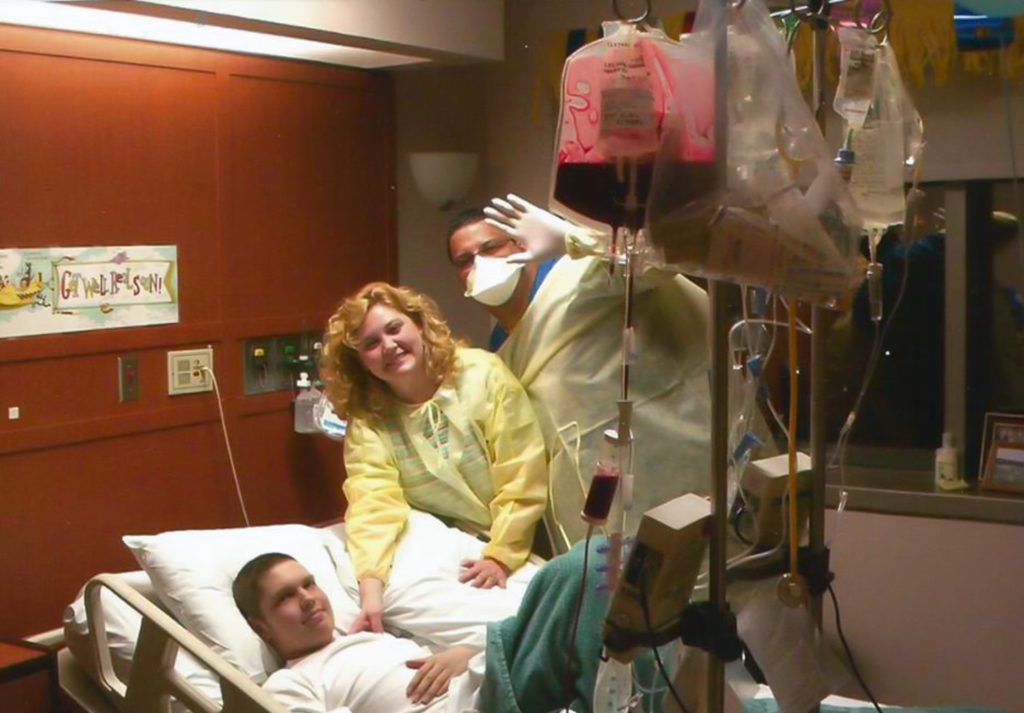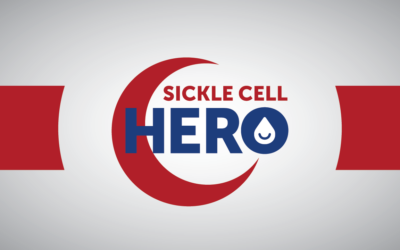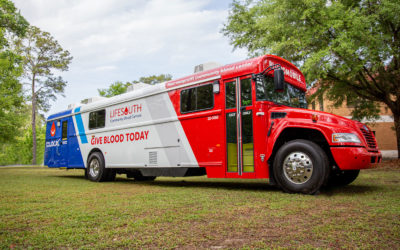Imagine all the good a single blood donation can do. Blood transfusions save lives in our community every day, giving hope to patients in need as well as their loved ones. Now imagine doing five times as much good with just one donation. That’s the power of platelets!

Angie Adams became an avid blood donor at LifeSouth after seeing the true need of blood when her son, Wesley, was diagnosed with leukemia and needed blood products every day. During this time, he required platelets and would have to wait a day to receive them because platelets weren’t available at local hospitals.
Wesley began speaking with the District Director of LifeSouth in Dothan, Ala, to convince her of the need for platelet machines for the cancer patients in Dothan. She ended up fulfilling Wesley’s wish by getting two platelet machines and subsequently named the area where they are kept “Wesley’s Way.” The walls of Wesley’s Way, which now exists in his memory, are decorated with murals illustrating significant aspects of his life and his journey with cancer painted by the Dothan High School Art Club. Angie often spends the time during her donation thinking about and praying for the people who will receive the platelets she gives.
“I know that they’re not just being put on a shelf somewhere,” Angie said. “They’re leaving me and they’re going to someone who’s in desperate need of those platelets.”
Angie is thankful for anyone who decides to take time from his or her day to donate blood for a stranger.
“A lot of people say you donate blood to save a life, and in Wesley’s case, his life was not spared, but the blood he got and platelets he got gave him another day, and there’s no money value on that extra day of life,” she said.
Platelets are crucially important blood cells that help your body stop bleeding. If one of your blood vessels is damaged, platelets immediately form a clot to fix the damage. If a patient’s platelet counts become too low, spontaneous bleeding can occur. Even a small amount of internal bleeding can be dangerous. Platelet transfusions are often used to treat low platelet counts in cancer patients, accident and trauma victims, patients with blood disorders and those who have received bone marrow transplants.
A pint of whole blood contains a small number of platelets which can be separated and concentrated. Donating platelets instead of whole blood means that five times as many lifesaving platelets can come from just one donation. Donors can give platelets through a safe and easy process called apheresis. During an apheresis donation, whole blood is drawn into a centrifuge which separates and collects the platelets. The other blood components (plasma, red and white cells) are returned to the donor. This process is repeated until a unit of platelets has been collected. The apheresis process takes a little over an hour and donors are welcome to relax, read a book, or watch a movie during their donation. Because platelets are completely replenished within a week, donors are able to give every two weeks, unlike whole blood donors, who must wait 56 days between donations.
The short shelf life of platelets makes it even harder to maintain an adequate supply. Platelets only last five to seven days on the shelf, so it is vital to have donors who give platelets regularly.
All blood donors receive a wellness screening prior to donation. Donors must be at least 17 or 16 with parental permission, weigh a minimum of 110 pounds and be in good health. A photo ID is required.
LifeSouth is a non-profit community blood center serving hospitals in Florida, Georgia and Alabama.



